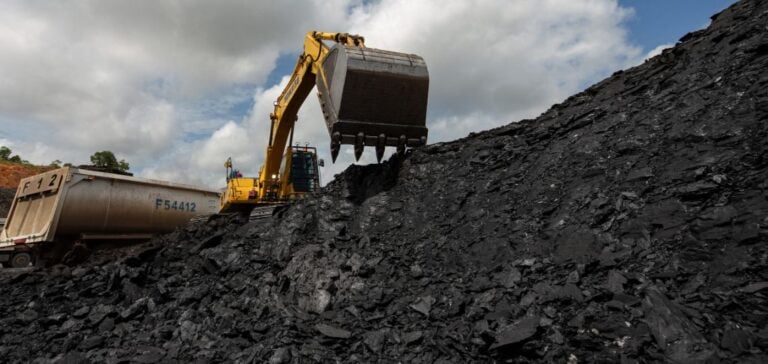Indonesia, the world’s fourth most populous country, is preparing to take on a monumental challenge: gradually phasing out its coal-fired power plants to achieve carbon neutrality by 2050. President Prabowo Subianto recently announced his intention to close all coal power plants by 2040, an ambition that exceeds initial targets and raises questions about its feasibility.
Coal, which currently accounts for two-thirds of the country’s electricity production according to the International Energy Agency (IEA), remains a cheap and accessible energy source. This dependency is further reinforced by relatively new infrastructure, making the early closure of power plants particularly expensive. According to the think tank IESR, closing these facilities would require massive investments, estimated at $27 billion (€25.5 billion) by 2040.
An Expensive and Uncertain Transition
The Indonesian government has signed a $20 billion international partnership to accelerate this energy transition. However, few concrete projects have materialized, and the strategy remains vague. Fahmy Radhi, an energy economist at Gadjahmada University, emphasizes that these ambitions require a radical policy shift.
Moreover, state-owned company PLN, which manages most of Indonesia’s electricity, has stated that it cannot bear the costs of shutting down coal plants alone. Modernizing and adapting existing infrastructure, combined with the development of renewable energy, represents a colossal task for the country.
Promising but Insufficient Initiatives
Despite these challenges, some initiatives point toward a possible path to a successful energy transition. In 2023, Indonesia inaugurated the region’s largest floating solar power plant, with a capacity of 192 megawatts. The country also has significant untapped renewable energy reserves, particularly in geothermal and biomass energy.
However, these projects remain marginal compared to the scale of the challenge. According to the energy think tank Ember, approximately three gigawatts of coal capacity would need to be decommissioned annually to meet the targets. Simultaneously, the government must streamline regulations and provide economic incentives to investors in the renewable energy sector.
A Necessary Mobilization
Indonesia still has a long way to go to integrate these ambitions into a coherent and achievable strategy. Experts agree that an aggressive approach, combined with international collaboration, could enable the country to achieve this transition. However, the current lack of a detailed roadmap casts doubts on Jakarta’s ability to meet its objectives.






















